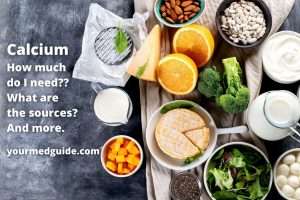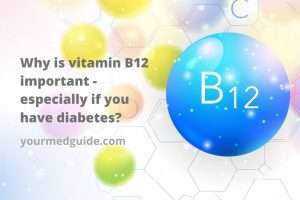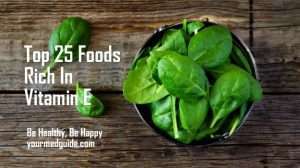Often, we have health issues we don’t always understand. The good news is, most of these may be due to a vitamin deficiency that can be solved by taking a multivitamin.
It’s that time of year when we stop to take stock of our successes and failures over the last few months – certainly since we made our New Year’s resolutions to get fitter and improve our health. Hopefully that’s going according to plan but if it isn’t, you might want to read on.
Sometimes our health is affected in ways we don’t realize or understand. It could be brittleness in the nails or hair, the appearance of ulcers and bumps, or a deterioration in eyesight. These changes might be disconcerting at first but they probably have a simple cause and easy solution.
The good news? In most cases these issues are caused by a vitamin deficiency that can be solved quickly by changing your diet or introducing a multivitamin.
But if it is a vitamin deficiency, how to recognize the signs and symptoms? How to find the solution to that vitamin deficiency?
Read on to find out!
8 common signs, symptoms and solutions to a vitamin deficiency

Brittle hair and nails
Have you noticed a change in the condition of your hair or nails? This could be due to the weather—it has been a long dry winter after all—but it could also be due to a vitamin deficiency in your body. Most commonly, a lack of biotin is the issue.
Biotin is a B7 vitamin that helps the body to turn food into energy. If you lack biotin you will experience brittle nails and dry split ends in your hair. Other symptoms include fatigue and muscle pain. To get more biotin into your diet eat nuts, spinach, broccoli, and seeds.
Mouth ulcers
Mouth ulcers are painful and unsightly. They are also very inconvenient especially when they appear suddenly before an important event or occasion. Several lifestyle factors may be to blame, but chances are these ulcers and lesions and due to a vitamin deficiency in your diet, the most common being B vitamins.
The group of B vitamins that are broadly responsible for ulcers and lesions are Thiamine, Riboflavin, and Pyridoxine. Include nuts, seeds, leafy greens and wholegrains in your diet to get these. You can also get them from vitamin supplements from pharmacies that deliver nhs prescriptions.
Bleeding gums
Every so often you will find some blood in the sink after you brush your teeth in the morning or evening. Usually this is caused by aggressive brushing that damages the gums but sometimes it’s due to a vitamin deficiency in your diet such as a lack of Vitamin C.
Vitamin C is not produced naturally in the body. It is one of the few vitamins that isn’t and must be added via food or supplements. Vitamin C has healing properties and is also an excellent antioxidant. Improve your diet by consuming more vitamin C by eating fresh fruits and vegetables or use a dedicated vitamin C supplement.
Poor night vision
Everyone struggles to see in the dark from time to time. Our eyes take a moment to adjust when we get up at night. But some people find it harder than others, and the eyes can deteriorate over time. Don’t dismiss your struggles to see in the dark.
A deterioration in your night vision may be a temporary vitamin deficiency that can be solved by increasing your vitamin A intake. Ignoring the issue can develop and lead to blindness. Increase the vitamin A in your diet by eating more dark leafy greens and yellow-colored vegetables.
Dandruff and scaly patches
Dandruff is dry areas of skin usually on the head, but with a vitamin deficiency you might experience it in various places such as under the arms and or on the hands. While some products like shampoos and body lotions can cause this, a common factor is a lack of core B vitamins.
These core B vitamins might be zinc, niacin, and pyridoxine. Normally these vitamins assist the body’s oil producing areas, but a lack can cause the areas to dry up and flake. To prevent this symptom, get more vitamin B into your body by consuming legumes, nuts, and whole grains.
Hair loss
Hair loss is most often associated with men of a certain age, but it can affect any person of any age or gender. Stress and low vitamin levels can aggravate hair loss. If you start losing hair don’t rush to the nearest transplant clinic, consider your diet.
Hair loss can be caused by a lack of zinc, niacin, biotin, and other vitamins you would typically get from a balanced diet. Think about what you eat and try to consume more leafy greens, seeds, nuts, and whole grains. These foods are rich in vitamins and nutrients that prevent hair loss.
Red or white skin bumps
Sometimes, red and white skin bumps that appear on the arms, buttocks, cheeks, and thighs. They look like goosebumps but don’t disappear when the skin starts to warm up. This condition is known as Keratosis Pilaris and results from vitamin A and C deficiency. It may also be genetic.
Keratosis Pilaris is most commonly found in children and may be congenital. If it’s new it is better to review your diet as it could be caused by a vitamin deficiency, specifically vitamins A and C. You can get these from multivitamin gummies or yellow-orange vegetables.
Restless leg syndrome
Restless leg syndrome, also called RLS, is a common occurrence. You may find that your leg moves uncontrollably or you have a sudden urge to move it. This might be accompanied by unpleasant sensations. The origin of this condition is hard to pinpoint but professionals think certain deficiencies contribute.
These are typically blood-iron deficiencies caused by lifestyle or diet. Get your iron levels checked to eliminate the possibilities. In any case it is a good idea to increase your iron intake by eating more leafy greens, seeds, nuts, and wholegrains.
Stay healthy!





